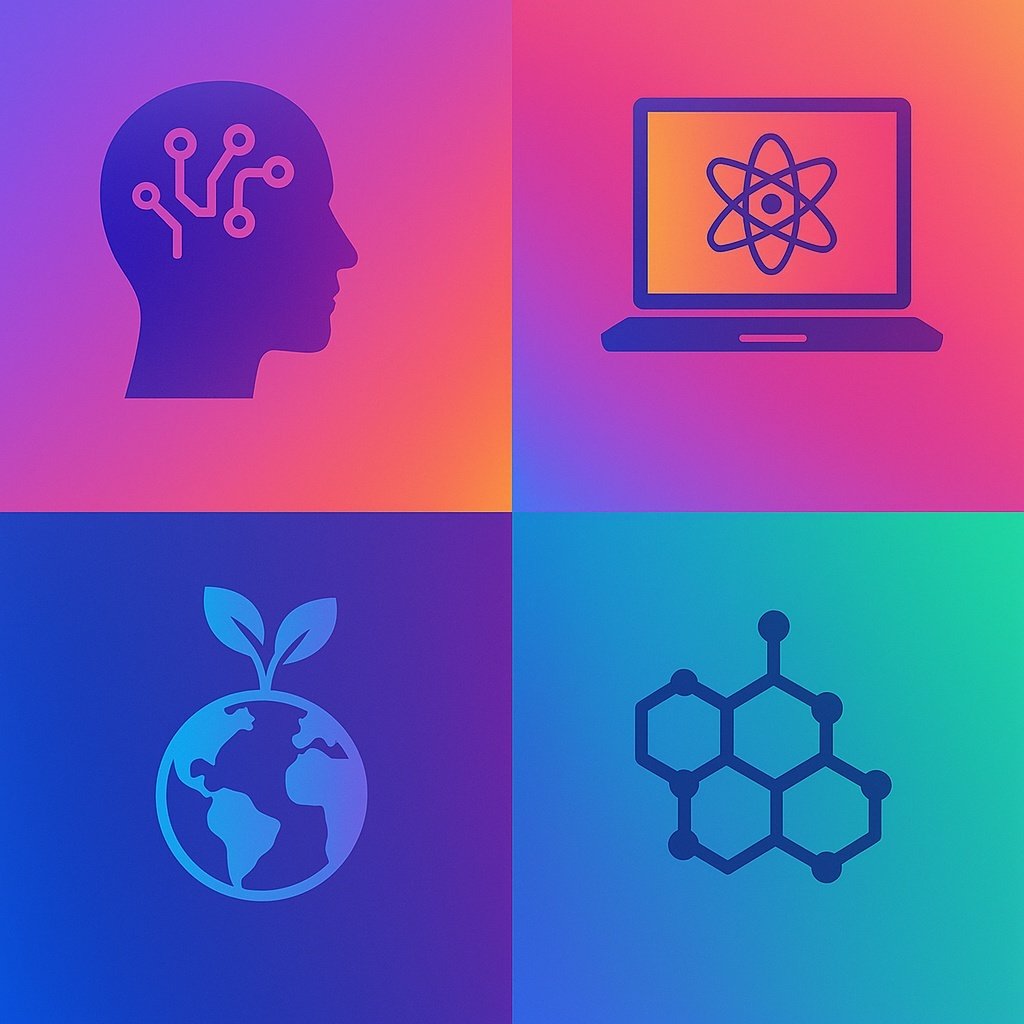In the world of startups, there’s a special class that’s quietly reshaping the edges of what’s possible. Not just apps or platforms, but companies dealing with fundamental technologies — ones that could change industries, science, even how we live. In India, deep tech is no longer theoretical; it is now powering real change in health, climate, infrastructure, language, and more. This blog explores how Indian startups are using advanced technologies to build the bedrock for future innovation, what challenges they face, and what this means for the broader ecosystem.
What is “Deep Tech” and Why It Matters Now
“Deep tech” refers to startups working on substantial technological advances: artificial intelligence (especially foundational and language models), robotics, quantum computing, synthetic biology, space tech, advanced materials, climate-tech, etc. These are not incremental—instead, they address complex scientific, engineering, or societal problems. In India, several trends have converged to make deep tech more feasible and necessary. Increasing compute availability; government mission-mode programmes (like AI missions, Quantum missions, etc.); growing investment interest; and rising demand for innovations that address real-world problems—from climate resilience to language inclusion. The startup ecosystem is moving beyond just consumer apps to science- and engineering-heavy ventures.
Key Areas Where Indian Startups are Pushing Boundaries
1. AI and Multilingual Foundations
One of the biggest frontiers is building AI systems that understand and work in Indian languages and contexts. India is highly diverse linguistically, and many English-first AI models do not perform well for non-English speakers or for local dialects. Startups are developing large language models (LLMs) specifically tailored for Indian vernaculars and deploying them in accessible tools—voice assistants, chatbots, content generation tools, etc. This helps in reaching millions who are left out in tech design that assumes English or western norms. An example is Sarvam AI, which builds Indian-language foundational models. Their tools are being used for voice agents, document parsing, and other applications tuned for regional languages and contexts.
2. Quantum Computing & High Performance Infrastructure
Quantum computing, though still early, is gaining momentum. The Indian government has launched missions to build quantum technologies. Startups are aiming to build quantum hardware, quantum simulators, or hybrid systems that combine quantum and classical computing. Simultaneously, companies are creating infrastructure for AI workloads—GPU clouds, ML Ops platforms, high performance compute (HPC) environments—so innovation can scale without being bottlenecked by lack of capacity. For example, Neysa is a startup that offers AI infrastructure services, managed GPU cloud, and services that help enterprise-level generative AI and high compute workloads. This kind of base infrastructure supports many other deep tech efforts.
3. Climate-Tech, Advanced Materials & Sustainability
Another emerging area is climate-tech and advanced materials. Startups are exploring novel materials, biodegradable or bio-based alternatives, ways to reduce carbon footprint of manufacturing, or new systems for sustainable agriculture, water management, etc. The urgency of climate change is pushing this technology from optional to essential. Also consumers, regulators, investors are now favoring green and sustainable innovation.
4. IoT, Sensor-Tech & Real-World Systems
Deep tech also extends to building systems that interact with the physical world: sensors, drones, remote monitoring, robotics, etc. For example precision agriculture startups, water & air quality monitoring, drone mapping for infrastructure or disaster response, etc. These require hardware, software, connectivity, data analytics all working together. India’s infrastructure challenges create huge opportunity: in remote areas, cities, farming, health—real-world systems that can function under constraints (power, internet, cost) are in demand.
What Challenges Must Be Overcome
While there is great promise, deep tech in India faces several hurdles. Access to funding for R&D-heavy work is harder than for simpler app-based models. Being able to attract enough skilled talent in specific scientific or engineering domains is challenging. Infrastructure (compute, lab, fabrication) is expensive and often centralized. Regulations may lag behind technology—for example in biotech, quantum security, environment. Also, building for local contexts (diverse languages, varied connectivity, different regulatory regimes) means solutions often must be bespoke rather than generic. Moreover, the time horizon is longer. Deep tech often requires longer R&D cycles, more capital before productization. For startups, that means investors need patience; founders need domain knowledge and resilience.
Why Deep Tech Success in India Will Have Big Impact
If India can succeed in deep tech, the rewards are huge. First, deep tech can address some of the country’s biggest challenges: healthcare access, climate change, agriculture, language barriers, inclusive education. Solutions built here are likely to be globally relevant, especially for other developing countries. Also, success in these areas helps build scientific capacity, infrastructure, talent—spillovers that benefit the broader startup ecosystem. Furthermore, companies built on deep tech tend to have higher defensibility: core algorithms, IP, hardware, regulation compliances, etc., make it harder for fast copycats to displace them. This can translate to more sustainable competitive advantage.
What to Watch in the Coming Years
In the near future, keep your eye on:
- Advances in foundational models for Indian languages: more startups, better models, tools that are more efficient and accessible.
- Growth of quantum ecosystem: more hardware labs, simulation platforms, partnerships with government for national missions.
- Increased investment in Green deep tech: climate-tech, sustainability, carbon capture, circular economy innovations.
- Better AI infrastructure locally: more GPU clouds, localized compute, edge computing, support for those in Tier 2/3 cities.
- Regulatory developments: laws around data privacy, biotech, AI safety will evolve and impact how deep tech startups can scale.
Deep tech is transforming what “startup” means in India. No longer just mobile apps or marketplaces, but ventures rooted in science, engineering, and global challenges. The journey will be hard, both technically and financially. But the potential impact is enormous. India is laying down the foundations for a future where innovation solves real, large problems—not just building new conveniences. For entrepreneurs, the message is: invest in domain expertise, align with local needs and contexts, partner with academia or government where needed, and be prepared for the long haul. For investors and policymakers, the imperative is to provide patient capital, infrastructure, and supportive regulatory environment. If these pieces fall into place, India’s deep tech startups could be world-class engines of change.


